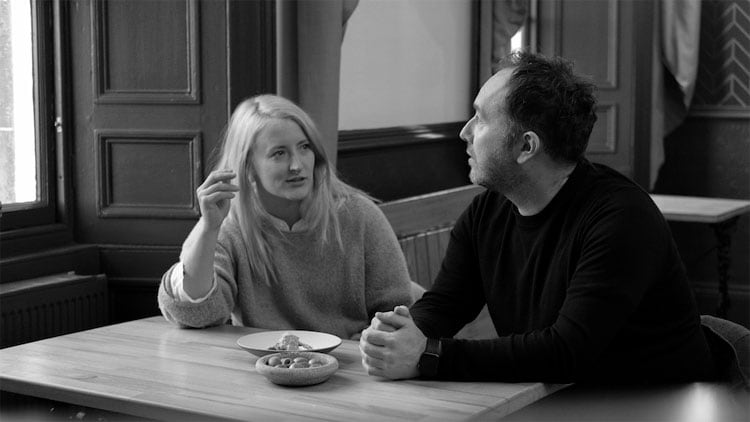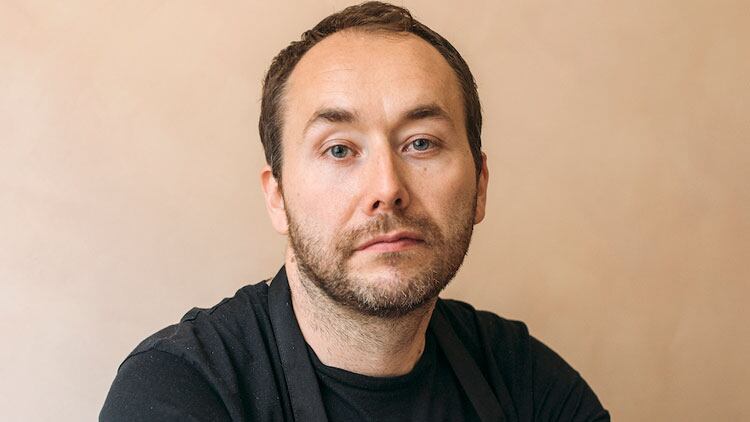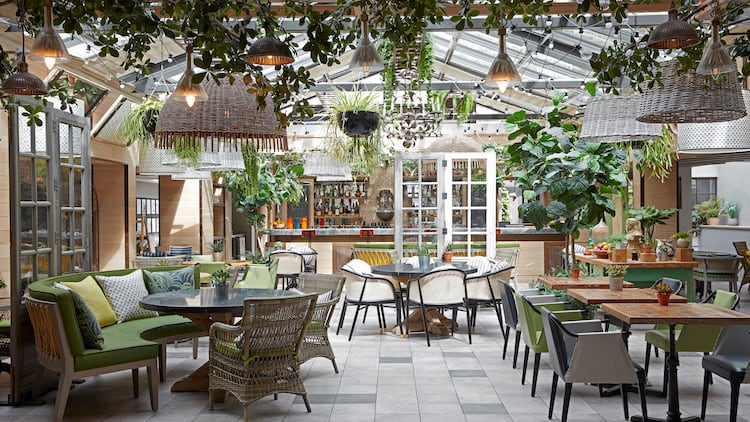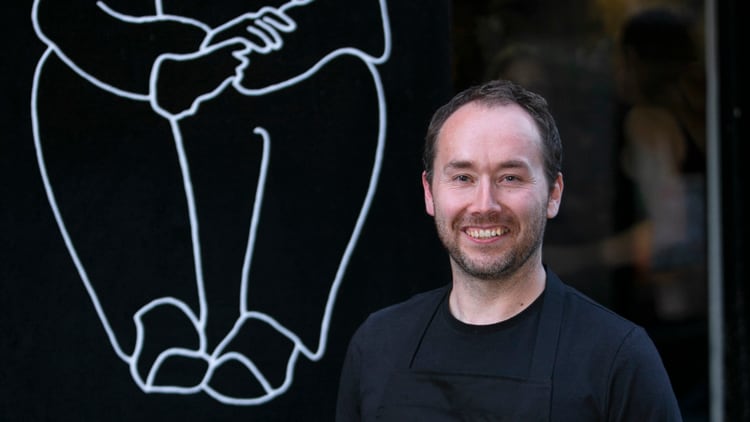Where did the idea for Tipo come from?
Stuart Ralston: Me and Jade had been chatting about opening a pasta restaurant for ages. She’s wanted to do one for a long time, but it’s never been in our immediate plans and I didn’t have much intention to open any other restaurants after Noto [Ralston’s second restaurant, which opened in 2019]. But after the pandemic we got the business back on its feet and had a decent amount of capital, so we decided to go for it.
Edinburgh has a thriving restaurant scene. What will Tipo bring to the party?
Jade Johnston: When I go to other cities, particularly London, you can find so many places that offer modern Italian cuisine with good music and wine. Restaurants like Padella and Manteca, for example, and it’s just something we’re lacking here in Edinburgh. You see it in Glasgow to a certain extent with Celentano's and Sugo, but not in the capital. Here you have more classical Italian places that have a time and place, but don’t really offer good independent wine from small producers. Or you just have chain restaurants, which I don’t want to go to.
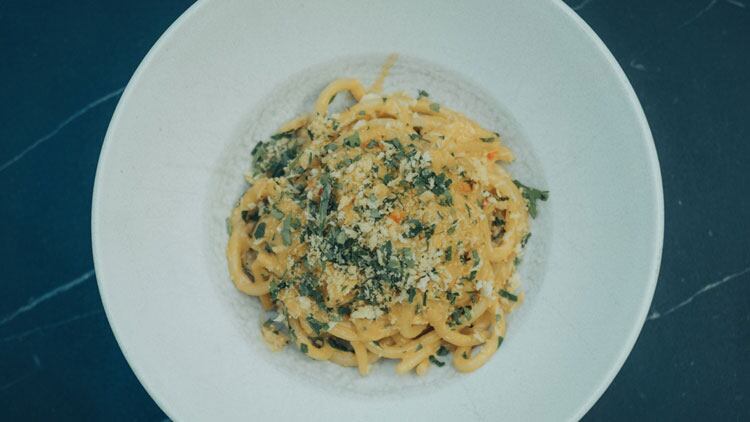
Did you look to any of those restaurants you mention when developing the concept for Tipo?
JJ: We took a lot of it from Noto. It’s going to be the exact same format as there – more of an intimate dining experience with small plates to share. The menu includes dishes we’ve talked about wanting to serve for a while, like a whole fried fish, which we couldn’t do at either Aizle and Noto.
SR: Myself and Jade eat out a lot in Edinburgh and travel a lot together too, and we always talk about what we want to do long term. The big thing for us is not to repeat what we’ve done before. So Tipo has its own personality and concept, but it’s based off the business template we use at Noto.
Stuart, your brother Scott will be leading the kitchen at Tipo. How much autonomy will he have over the menu?
SR: It’s a funny one. He joined us for a number of reasons. In the past I don’t think he’s been given the opportunity that meets his talent [Scott was previously executive chef at Compass Group Edinburgh], and as we expand it’s best to work with people we can trust. In terms of autonomy, I come up with the initial ideas for the menu and then I work with the kitchen to develop the dishes. It is collaborative, but at the end of the day I do have final say on what’s on the menu. At the start of any new project, I’m very involved. As time goes on, though, the kitchen team will become more in control of the menu day to day, which allows me to take a bit of a step back.
You relocated Aizle from its original location on St. Leonard’s Street to a new space within the Kimpton Charlotte Square Hotel in 2020. How has the move benefitted the restaurant?
SR: Since we moved, we’ve increased capacity and so we’ve increased the team quite substantially. We’ve settled into the hotel well. It’s nice because we’re still independent within the hotel and we pay them a rent. And it’s been good, we made it onto the Estrella Damm National Restaurant Awards top 100 list last year, so I feel like we’ve been able to increase the quality of what we do. It’s been a successful move.
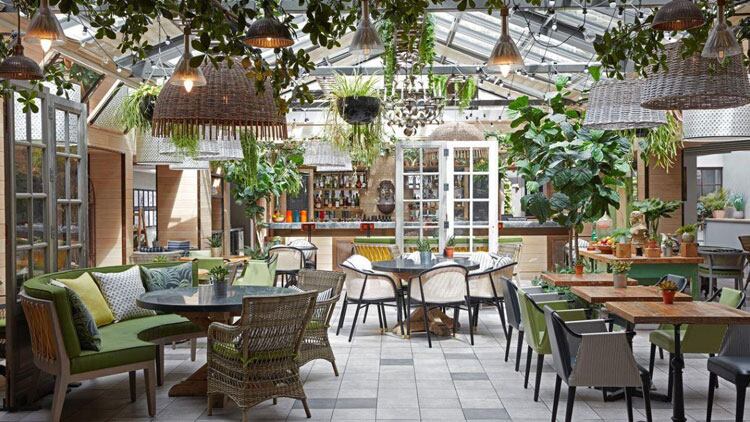
Back in 2019 you famously reduced Aizle from a five to a four-day week in order to relieve the pressure on your staff. Now that the restaurant is back to a five-day operation, and with your other sites open seven days a week, how do you ensure your employees maintain a healthy work/life balance?
SR: It’s a mix. From a kitchen point of view, most of the chefs are happy working longer shifts across the four days. Front of house prefer more flexibility. Some do four, but the majority do shorter shifts over five days. A lot of Jade’s focus as we’ve been growing is making sure there are systems in place to ensure staff don’t have to work longer than they’re contracted to. She kickstarted a lot of that. I grew up working every hour under the sun when I was rising through the ranks, but when she came on board, she knew it was unsustainable and has worked hard to make sure there’s plenty of balance now.
And how is staffing at the moment, given the current recruitment issues facing the sector?
JJ: It has its challenges, but it’s better than it was and almost back to pre-Covid levels. I think it’s always hard to hire for hospitality in the UK as it’s seen as a service industry and not a proper career path. Our focus is on retaining the people we have and offering the development, training and career progression they want to make sure they don’t leave us for another restaurant. Most of our team has been with us for years – we rarely lose people to other venues. If we do, we lose them to other industries or countries. You don’t want to lose five or six years of experience just because you haven’t nurtured that person or offered them the right career development.
Are there any plans for further restaurant openings in the future?
SR: I can’t tell you anything right now, but I would say watch this space in the coming months…

